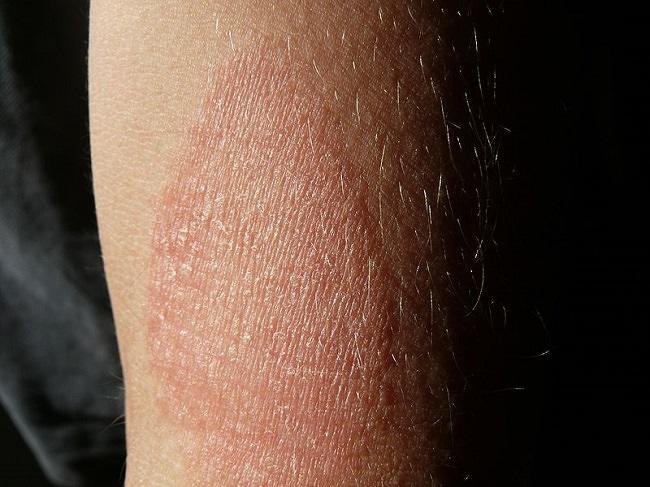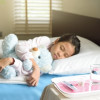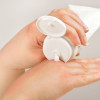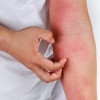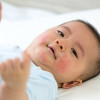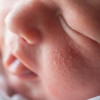Antihistamin oral sering digunakan sebagai terapi adjuvan atau tambahan pada pasien dermatitis atopik. Namun, tindakan ini tidak didasari oleh basis bukti yang adekuat. Dermatitis atopik adalah penyakit inflamasi kulit kronis yang sering disertai pruritus intens dan gangguan kualitas hidup pasien. Pemberian antihistamin diharapkan dapat mengurangi ketidaknyamanan akibat pruritus, tetapi efikasinya masih banyak dipertanyakan.[1-3]
Peran Histamin pada Dermatitis Atopik
Pemberian antihistamin pada dermatitis atopik diharapkan dapat mengurangi pruritus, yang merupakan gejala utama dan faktor pemicu garukan berulang, sehingga dapat meminimalkan morbiditas terkait dermatitis atopik dan memperbaiki kualitas tidur pasien. Pada dermatitis atopik, terjadi pelepasan histamin oleh sel mast, sehingga pemberian antihistamin diharapkan dapat memodulasi patomekanisme ini.
Histamin akan memperkuat sensasi gatal melalui aktivasi reseptor H1 pada serabut saraf sensorik, serta berkontribusi terhadap peningkatan permeabilitas vaskular dan rekrutmen sel imun, yang dapat memperburuk inflamasi kulit. Meskipun dermatitis atopik bukan semata-mata dimediasi histamin, pemberian antihistamin oral merupakan hal yang umum ditemukan di praktik klinis dan dipercaya mampu mengurangi pruritus melalui modulasi aktivitas reseptor H1.[3-5]
Bukti Ilmiah Mengenai Efikasi Antihistamin Oral pada Dermatitis Atopik
Basis bukti mengenai efikasi antihistamin sebagai adjuvan penyakit dermatitis atopik masih melaporkan hasil yang saling bertentangan. Sebagian bukti menunjukkan bahwa antihistamin efektif mengatasi gejala gatal pada dermatitis atopik, sebagian lagi tidak menemukan perbedaan efikasi dengan plasebo.[6-10]
Hasil Konsensus: Dapat Dipertimbangkan dalam Jangka Waktu Pendek
Konsensus petunjuk tata laksana dermatitis atopik di Korea menyatakan belum terdapat bukti yang cukup untuk merekomendasikan penggunaan antihistamin pada penyakit dermatitis atopik. Meskipun demikian, konsensus tersebut menyatakan bahwa penggunaan antihistamin dapat dipertimbangkan dalam jangka waktu pendek, terutama bagi pasien yang mengalami kesulitan tidur karena gatal-gatal.[6]
Hasil Meta Analisis: Tidak Terdapat Perbedaan dengan Plasebo
Sebuah meta analisis yang mengevaluasi 25 studi, meneliti tentang efikasi antihistamin oral sebagai terapi tambahan dari tata laksana topikal pada anak dengan dermatitis atopik. Pada meta analisis ini, didapatkan komparasi dari beberapa jenis antihistamin dengan plasebo.
Berdasarkan hasil analisis, didapatkan bahwa tidak ada perbedaan hasil Scoring Atopic Dermatitis Index (SCORAD) yang bermakna antara penggunaan cetirizine, loratadine, ataupun fexofenadine dibandingkan plasebo. Namun, meta analisis ini memiliki keterbatasan karena desain studi yang kurang baik dan kualitas bukti dari studi yang dianalisis termasuk dalam kategori rendah–sedang.[7]
Hasil Randomized Controlled Trial (RCT): Tidak Terdapat Perbedaan dengan Kontrol
Sebuah RCT meneliti tentang efikasi pemberian antihistamin cetirizine untuk mencegah berulangnya dermatitis atopik pada anak. Pada RCT tersebut, tidak didapatkan adanya perbedaan signifikan antara grup kontrol dengan grup cetirizine selama 6 bulan follow up. Cetirizine tidak efektif dalam mencegah rekurensi dermatitis atopik. Meski begitu, perlu dicatat bahwa RCT ini memiliki jumlah sampel yang kecil dan banyak pasien yang loss-to-follow-up (20%).[8]
Hasil Studi yang Mendukung Efikasi Antihistamin untuk Dermatitis Atopik
Penelitian lain menampilkan hasil yang berbeda. Studi ini meneliti tentang efikasi antihistamin oral olopatadine dalam menurunkan keluhan pasien dengan dermatitis atopik melalui skala analog visual (VAS), kegiatan menggaruk malam hari (scratching nocturnal) melalui alat khusus, dan kualitas tidur melalui elektroensefalogram. Hasil penelitian menunjukkan bahwa olopatadine efektif mengurangi rasa gatal, namun studi ini memiliki keterbatasan berupa jumlah sampel yang sedikit.[9]
Studi lain adalah sebuah kohort retrospektif yang menganalisis 161 pasien dermatitis atopik dari Eczema Clinic, National Skin Centre, Singapura. Dari 380 observasi pengobatan, 177 (46,58%) menerima antihistamin. Hasil studi menunjukkan bahwa pasien yang menerima antihistamin mengalami penurunan rerata skor gatal 0.67 dan skor gangguan tidur 0.87 dibandingkan pasien yang tidak menerima antihistamin.
Analisis juga menunjukkan bahwa antihistamin generasi kedua lebih efektif dibandingkan generasi pertama dalam mengurangi pruritus dan gangguan tidur, meskipun perbedaannya tidak mencapai signifikansi statistik.[10]
Kesimpulan
Dermatitis atopik atau eksim merupakan kondisi peradangan kulit kronik yang ditandai dengan adanya ruam kulit, kemerahan, bengkak, dan gatal. Antihistamin oral sering diresepkan pada kasus dermatitis atopik dengan harapan akan mengurangi keluhan gatal dan gangguan tidur terkait gatal.
Meski begitu, basis bukti yang ada saat ini belum adekuat untuk mendukung penggunaan antihistamin oral pada kasus dermatitis atopik. Kebanyak studi memiliki jumlah sampel yang sangat kecil dan memiliki berbagai keterbatasan metodologi. Masih diperlukan uji klinis acak terkontrol dengan sampel lebih besar sebelum kesimpulan yang lebih meyakinkan bisa ditarik.
Direvisi oleh: dr. Bedry Qintha




